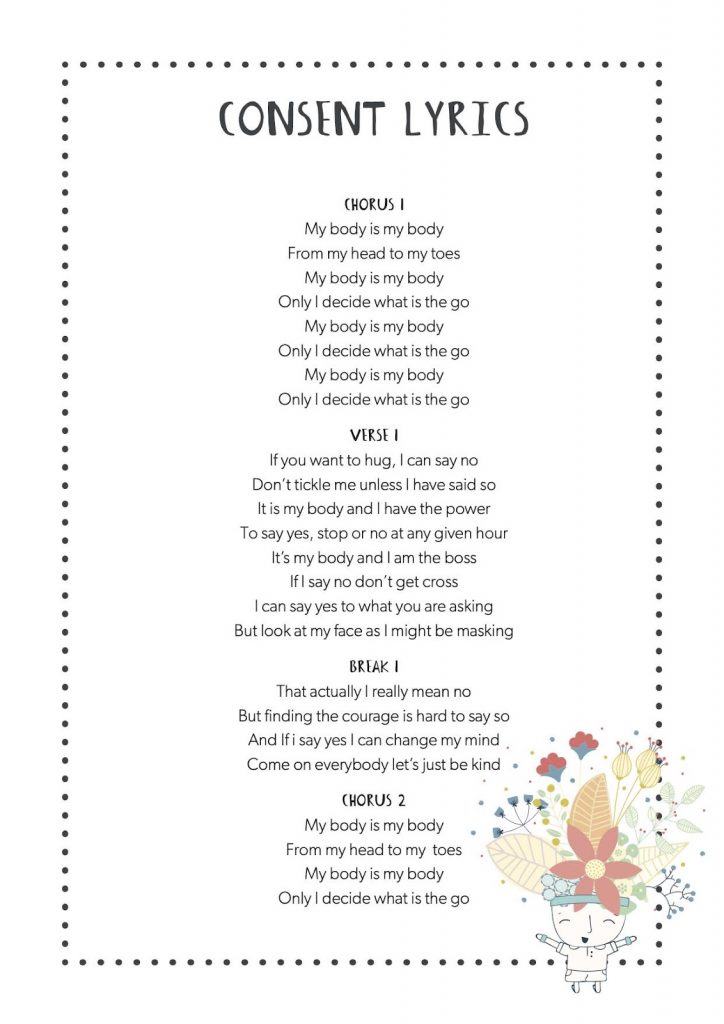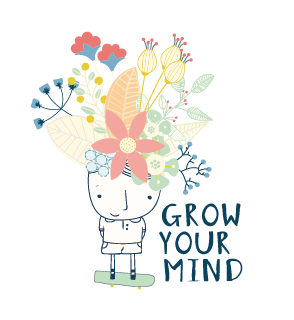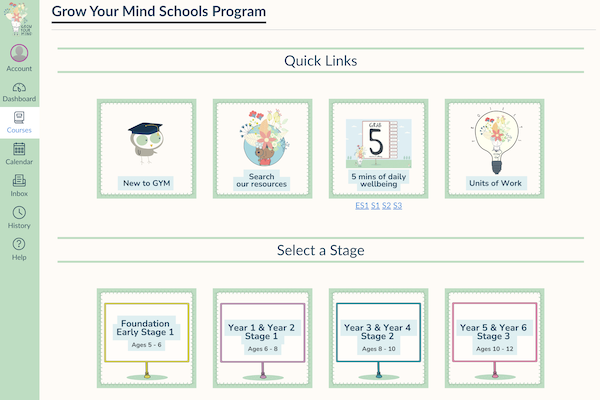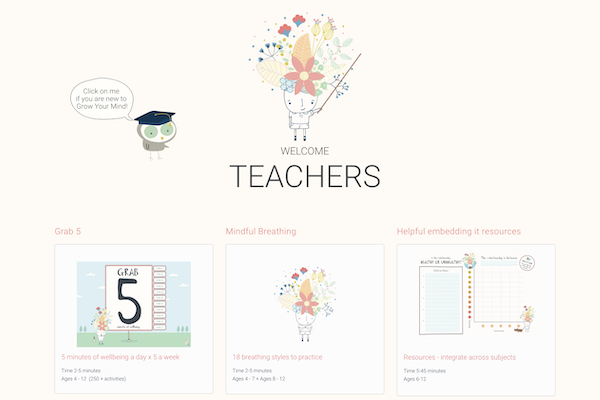NEW Grow Your Mind podcast episode – Season 4, Episode 1 with special guest Yumi Stynes!


Episode 1, Season 4 opens with a SONG! We could not help ourselves. We were in celebration mode here at Grow Your Mind HQ. In October 2021, the NSW parliament voted to overhaul the state’s curriculum when it came to consent and a new national health curriculum with explicit references to lessons on consent and respectful relationships was also agreed upon. That curriculum won the support of all the state and territory education ministers.
So naturally we wanted to record a podcast about consent, we comissioned a song and we got busy creating learning activities, lesson plans and even a music clip on this highly important, albeit largely misunderstood topic. We also recorded a self-led PD for educators so that they would feel comfortable and prepared to start teaching. We were going to be ready for educators! After all, it’s fantastic to have an ‘overhaul’ but where do you start? As we developed the podcast episode our aim was to remove any awkwardness that teachers and parents may have felt about consent.

We wanted the podcast episode to:
- Clearly define what consent is and is not
- Introduce the nuances that come along with consent – power dynamics, gender and body language
And
- Make the content age appropriate and applicable for primary aged kids.
We were ready for the overhaul.
But on January 28th 2023, the NSW Education Department decided that the current PDHPE curriculum was good enough and has not made any changes to the way it teaches consent.
So now instead of being excited we are THRILLED and we are RELIEVED that we have spent the time and energy creating innovative content that the NSW parliament voted on. Side note: Independent schools in NSW are obliged to teach the national curriculum with revised consent education.
We know that what we have created at Grow Your Mind is innovative and in line with the calls for change. These changes include educating children about power dynamics, gender stereotypes and healthy relationships. The thing is, the NSW curriculum that was adopted in 2018 does make age-appropriate consent education mandatory from kindergarten, but interestingly it has not yet rolled out new material to teachers to help them deliver consent education in line with this 2018 curriculum. Now imagine Grow Your Mind standing on its tippy toes, arms and hands pointed high, straining our eye brows saying “Over here! We have done it!”

Our podcast episode: Consent is a two-way street is a content rich, playful, dyanmic and educational offering. A teacher can print out the accompanying student reflection journal, press play and away they go. Consent lesson done.



And the best part about this episode, is that along with outstanding kids who host the show, your students/children will also have the opportunity to hear from Yumi Stynes! Yumi is a television and radio presenter, podcaster, author, incredible cook, and human. One of her books, Welcome to Consent, was recently named the New York Public Library’s TOP 50 books of the year.

Yumi answers questions such as:
It can be hard to say ‘no’ to our friends, are there other ways to say it?
If I consent to something, can I change my mind?
How do you explain consent to primary school kids?
Yumi gives fantastic, articulate and age-appropriate answers. Interestingly, we are asked 3 similar things hear at Grow Your Mind about consent education:
- An episode on consent for primary school kids, is that appropriate?
Yes! And that is an enthusiastic yes to that question!
The story the kids share on the episode is one whereby the Guard Dog (the amygdala) offers the Sensitive Octopus (insular cortex) a hot chocolate. The Sensitive Octopus says yes with hesitation and changes its mind. The Guard Dog is furious and while the Sensitive Octopus sleeps decides to pour the chocolate into its beak. A conversation about permission ensues. Because here’s the thing, whether it be drinking hot chocolate, borrowing items, hugging – these all require permission. Kids need to know to ask for it, when they have received it and the tools to say no and to listen to their bodies with what feels right. That is consent education. Permission. And understanding the limitations of the answer ‘yes’.
- So what really is consent education?
Perhaps the best way to answer this is to tell you what it is not.
Consent education in primary school does not invovle talking about sex.
Instead, age-appropirate consent education focuses on permission, body autonomy, secrets that should not be kept, respect, healthy friendships, gender stereotypes, power dynamics and reading people’s non verbal signals.
Since Grow Your Mind was founded 6 years ago we have been teaching, writing and supporting educators to teach these core skills that enable a child to consent, to know that someone has consented and to receive a no with respect. These skills include but are not limited to:
- Emotional regulation
- Healthy friendships
- Conflict management
- Recognising unhealthy relationships
- Character strength education
- Emotional literacy, including the ability to identify other people’s emotions
- Kindness
To be able to consent to something, to be able to say no and to be able to receive a refusal all require the above key skills. We know there can be a fair bit of nervousness about this topic, but at Grow Your Mind we have made it our mission to make engaging, playful, researched, age-appropriate content to support teachers.
And finally:
- Why teach consent education?
When we announced to friends and family that we would be recording an episode on consent for Season 4 of the Grow Your podcast we received overhwlemning support and then a few of these comments starting coming in…
- Well I hope you are teaching it to the girls too. Boys shouldn’t be singled out.
- Is this really the responsibility of the school? Shouldn’t parents being having these conversations?
- Isn’t the school day already very busy?
To that first comment. Yes, consent education is for both genders, for transgender, for gender fluid individuals – for everyone. Wouldn’t you want your child to not only have the skills to say no but to also receive a no with respect? Wouldn’t you want your child to have developed a skill set whereby they really knew if someone had consented or not? Where there was no grey area? Because that’s what happens when you understand consent – you understand that it needs to be an enthusiasic yes, that you need to check in AND that it is time specific. Kids from ages 5 and up learn on our episode that there are key golden rules when it comes to consent.

In response to question 2, yes consent education should happen at home but it also must happen at school. International and Australian studies show that respectful relationships education is one of the most promising strategies to promote gender equality and prevent domestic and family violence, sexual assault and sexual harassment. Reviews of school based protective behaviours programs have found them effective in increasing children’s skills in protective behaviours – helping keep kids safe from abuse.
And finally to number 3, yes the school day is busy! Why not make it a more cohesive learning environment but instilling a culture of respect? The evaluation of OurWatch’s respectful relationships pilot in Victoria found teaching respectful relationships had clear, consistent positive impacts on students’ attitudes, knowledge and skills. Two thirds of teachers reported improvements in classroom behaviour and almost half of teachers said their own relationships with their students improved. Better behaviour in Australian classrooms means better learning environments and better student outcomes.
We have done the work for you educators and families and we are so proud of what we have created. Follow these steps now to start your consent education journey:
- Go and find our NEW episode on consent, wherever you listen to your podcasts.
- Grab a student journal
- Sign up for our self-led PD and
- Consider investing in our new module on consent.
Schools play a vital role in educating students about relationships in positive, strengths-based ways. Together we can approach consent education in a holisitc, dynamic and high impact way.


